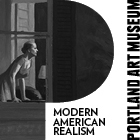
|
||
|
Portland art blog + news + exhibition reviews + galleries + contemporary northwest art
|
||
Blood or Art?  It isn't always an easy choice and I'm certain Tim Dalbow is kidding, but this little email excerpt is too good: "Thanks for. . . .the mention of my blue balls (civic art project), but I'm already on to a new project designed for the nonprofit bleeding of poor artists for donations. If you haven't already heard I want to supply solicitation with pints (ouch) of my own blood. It costs me no money and it's a renewable resource!" -TSD It does touch a nerve regarding Portland's now too frequent tendency to raise money for nonprofit organizations through art auctions. It is as if the artists are some eternally milkable cow. Yes, like Rumplestiltskin, artists are capable of spinning straw into gold but that colorful character didn't fare too well in that bargain either. We should note that most of the auctions are noble and help raise hundreds of thousands of dollars for good causes but at best it is getting tired and at worst it seems vampiric. I think auctions should be rare and for emergencies, not long-term funding strategies. Any thoughts? Posted by Jeff Jahn on June 22, 2005 at 20:24 | Comments (5) Comments Jeff wrote:
On the other hand, non-profits such as Cascade AIDS Project, shouldn't hesitate to ask for donations from artists. And events like TJ Norris's 100x100 make sense because galleries showing consistently cutting edge emerging work in Portland always operate at a loss. The lesson seems to be: Posted by: MOR Cheers to that MOR! This protocol of starving non-profits, artists, and small galleries has got to go. If the charm of this city is its creative class, I expect people to put their money with their mouth is and support those that are making it happen. Otherwise, we're just another small city oozing with yuppies and Regal cinemas. Culture doesn't come without a price and if people aren't willing to pay for it here it will move on to greener pastures. I'm tired of artists being asked to give themselves away. When is the last time a non-profit called the phone company and asked them to donate their services? They always manage to find the funds to pay those bills. Artists work hard and put themselves out there all the time. We need to be dreaming up new cycles of abundance where everyone gets paid (with a few tax write-offs here and there). That goes for the non-profits themselves and small galleries, too. If you like what this city has to offer, don't talk about it over a PBR or your Bluehour martini, go to an event, buy a piece of artwork, become a member of an organization, make a donation. Do something tangible to support what you value because at the end of the day, all that chatter isn't going to pay the bills. We live in an amazing city but it's time to make the commitment to build a vibrant, sustainable arts community where everybody makes a living. Posted by: jenn Every art institution operates within an ecology, a community. If the institution wants money, it will be most successful if it finds something people desire and will fund accordingly. The advantage of a group auction or show is that the artists themselves come by, with their friends. A group show too will have a variety of aesthetics, drawing a broader audience. Auctions are a legitimate studio cleaning strategy, but the staff of the institutions are often doing better than the artists. So the equation for the artist is what will the donation or partial donation do for my career and my relationship with my customers. Commissions like TJ's are sort of like prints, lesser value=more affordable work made available to a broader audience. Institutions have to offer value for value and being spared from guilt in exchange for a donation of art or money is not good value. So I would say I'm half agreeing and trying to sharpen the debate! Posted by: niceart Ah yes, Nice, I know it's not as simple as my romantic notions propose it might be. I'm not even opposed to auctions, per se, I'm more just tired of this martyr model that creeps in with artists and arts-based institutions. Even as young gallery owner, it pops up all the time. I think there are other options and I assert that we all have a right to get paid for our work. That doesn't mean that there's anything wrong with in-kind donations, I'm just noting, in response to Jeff and Tim's comments, that auctions are not the only funding option and that artists should develop their own guidelines and boundaries for how much they are willing to donate and under what terms so that they don't start to feel "blood-drained". And, there's no reason they should be expected to contribute any more than any other working professional in town, which is too often the case. I still stand by my original assertion that there are ways to build a sustainable culture (with viable businesses and institutions) where everyone is paid their due, without relying on guilt, martyrdom or a model of scarcity. Posted by: jenn Jen, you make a great point in encouraging people who like the work and like the city and the art scene to not just talk about it over a drink but to invest in it. Investing in it can mean many things. But just to continue with the martini example...I'm always shocked by how many people don't blink at spending $100 on a night of dinner drinking and going out but think local art is out of their reach. I still think this has something to do with a need to teach our friends that it's OK to collect art. They don't need to wait until they own a home or have a particular sort of life. Most of what makes Portland an interesting art scene is that the artists and gallerists didn't wait until they reached a certain point before showing and opening galleries that challenge the status quo. At some point kids learned it was OK to spend $200 on jeans and $100 on a night out but they haven't figured out that they can start to collect great work in the same price range. Perhaps it should start with an all out effort to make it "terribly uncool" to have anything decorating your apartment that wasn't made by a person. The end of Ikea art, the beginning of a new collector base. Posted by: MOR Post a comment Thanks for signing in, . Now you can comment. (sign out)
(If you haven't left a comment here before, you may need to be approved by
the site owner before your comment will appear. Until then, it won't appear
on the entry. Thanks for waiting.)
|
| s p o n s o r s |
 |
 |
 |
 |
 |
 |
 |
 |
 |
 |
 |
 |
 |
 |

|
Site Design: Jennifer Armbrust | • | Site Development: Philippe Blanc & Katherine Bovee | |


![[TypeKey Profile Page]](http://www.portlandart.net/nav-commenters.gif)